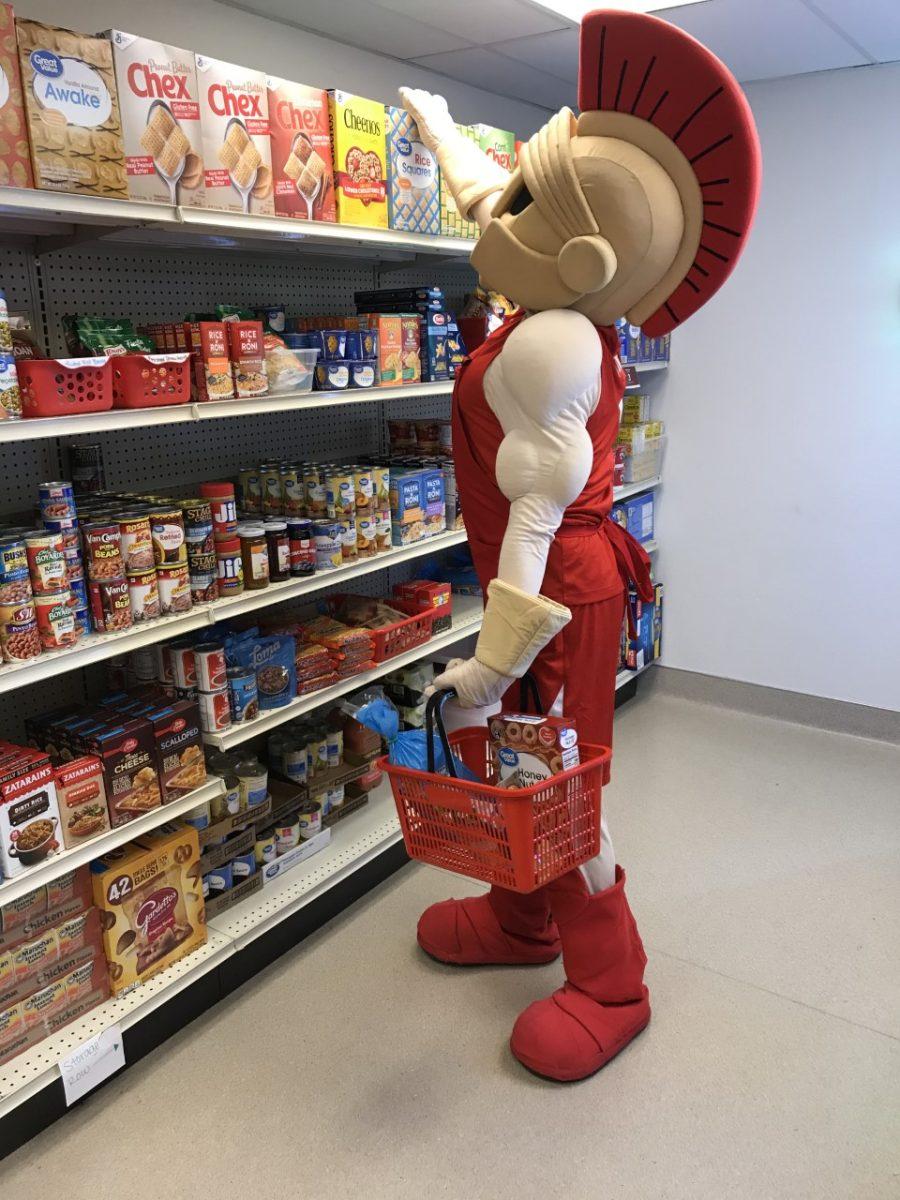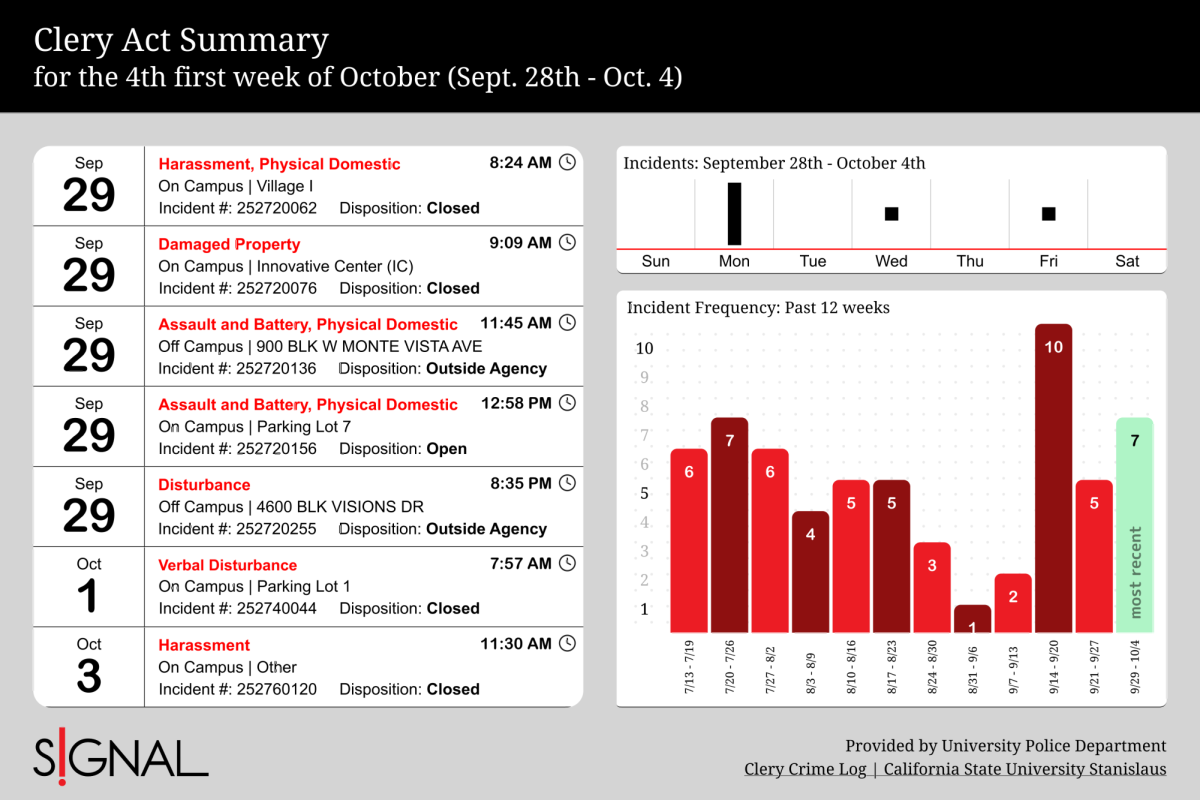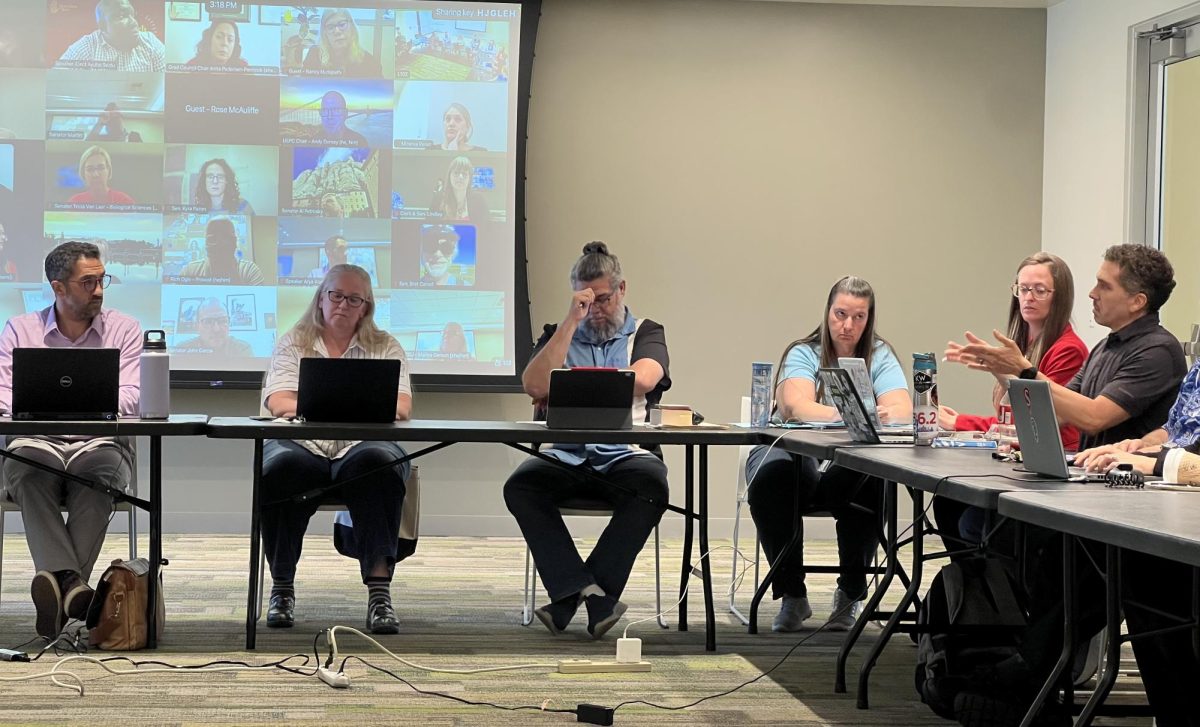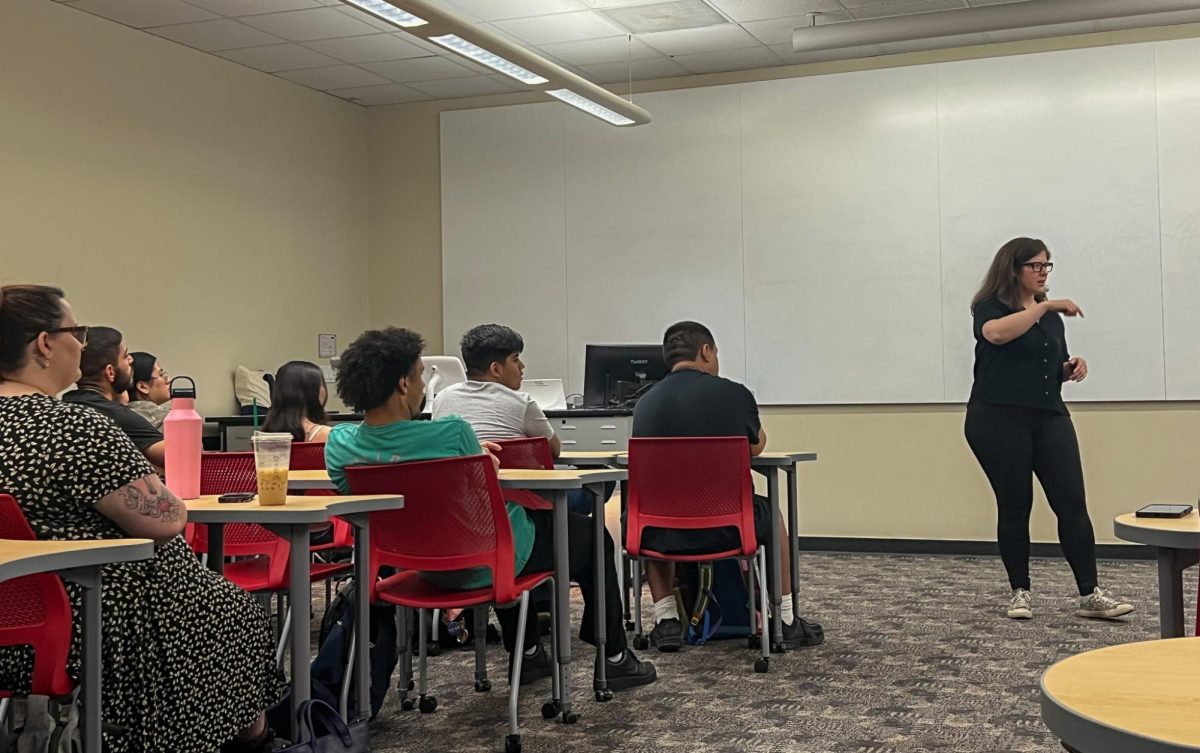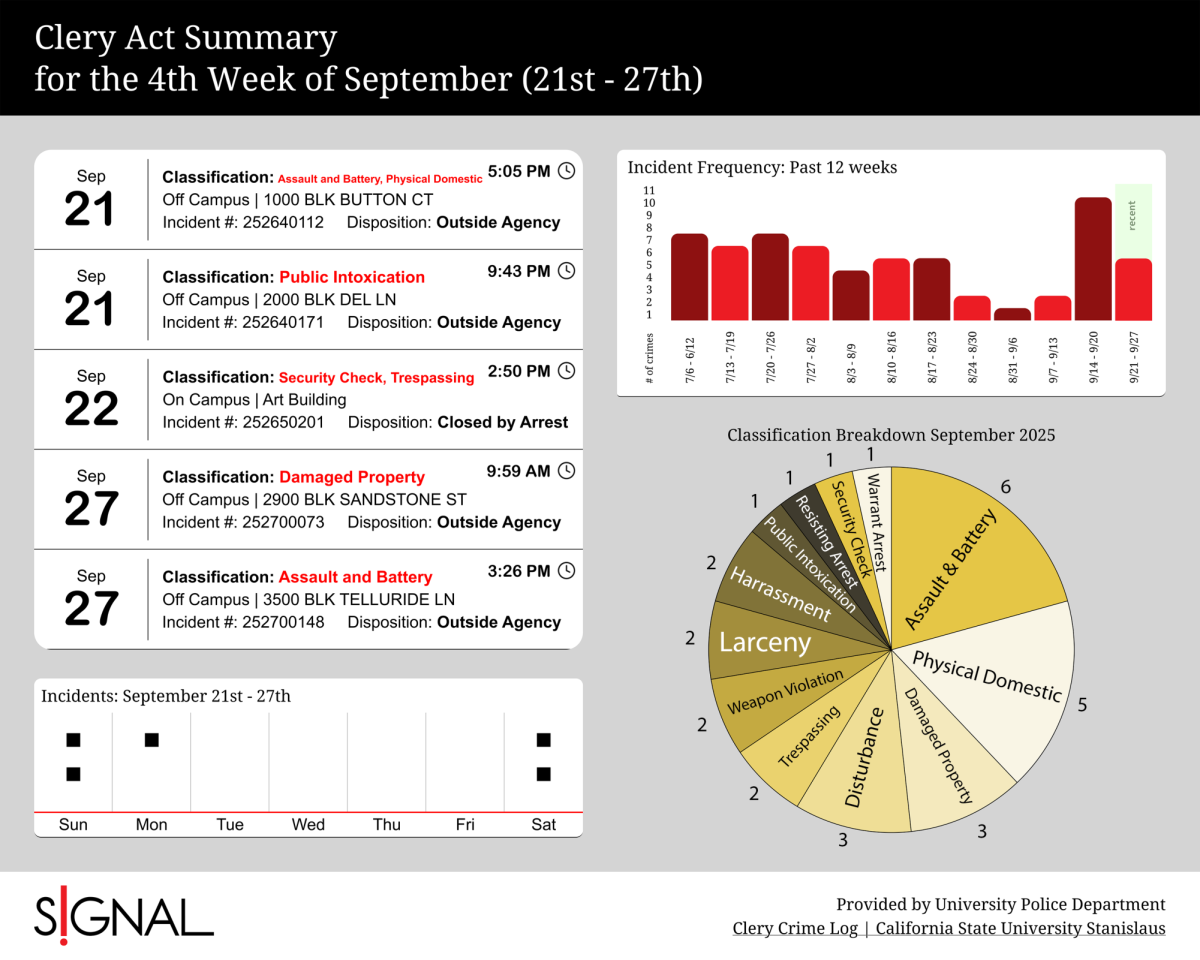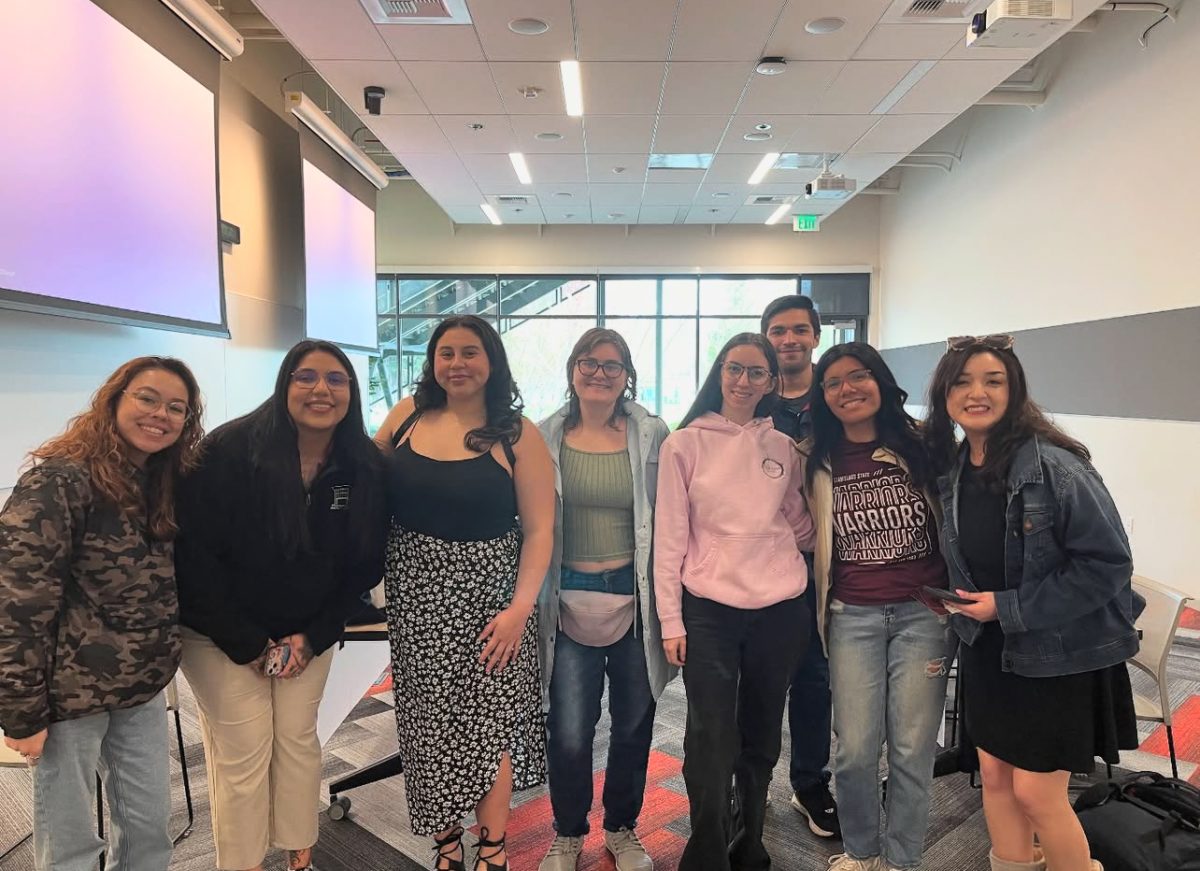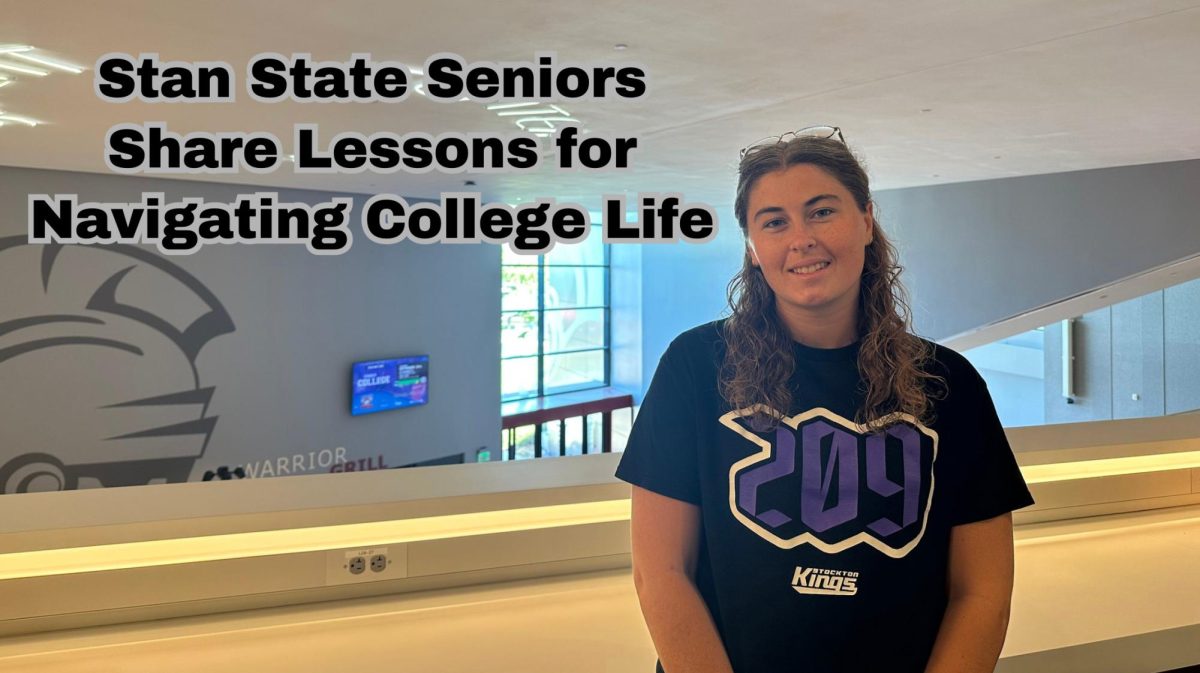Three Stanislaus State professors have collaborated with 12 students to conduct research regarding food and housing insecurity. They began their journey with Participatory Action Research (PAR) in 2019, focussing on the experience of Stan State students and attempting to raise awareness to the issue, which many students face everyday.
Jane Rousseau, an associate professor for Stan State’s Master of Social Work program, has been working alongside MSW professor and chair John Garcia and economics professor Kelvin Jasek-Rysdahl to gather information from a participatory action approach. The team’s purpose for the 12 co-researching students is to have firsthand experience with experts. The research was the first PAR study to be done on the Stanislaus State campus.
The team met on campus to come up with a research study question, asking “What are the lived experiences of food and housing insecure students on campus?”
Garcia explained that there are multiple forms of food and housing insecurity and that the students they have come across are in a unique situation.
“The data is showing students who are food and housing insecure are living in what is called a ‘survival mode,'” Garcia explained.
When it comes to CSU students as a whole, 42% of students are food and housing insecure, and that figure can be narrowed down to Stanislaus State’s student body.
“Almost half of the students at Stan State experience some type of food insecurity and housing is lower,” Rousseau said.
Garcia stressed that these figures were all obtained prior to the Covid-19 pandemic, which leads him to believe that the problem may be even worse. The university itself has addressed these issues and has expressed a desire to help those who fall under this category, but Garcia said that decisions are being made without actually reaching out to the students themselves. A main conclusion from early research is that the university needs to involve students if they want to provide resources, so research team took it upon themselves to reach out and gather several recommendations from students.
Aside from involving students, the team found it essential to support one’s mental and psychological health and to have health center and psychological staff that know of the food and housing insecurity issues.
“Mental and psychological stress were something we found across the board,” said MSW student and co-researcher Brittany Orhategaray.
The research team is currently working with Stan State’s Psychological Counseling Services to help accommodate for some of these needs, such as possible mutual support groups that would be specifically geared towards food and housing insecure students. There are even some recommendations to open counseling hours outside of the usual nine to five. Students who are working this can prevent one from attending a necessary appointment.
“It becomes very difficult to engage in things during business hours to get to campus and go to a counseling appointment,” Rousseau said.
The third action is providing access to all the research the team has done. Food and housing is a highly stigmatized topic that not many want to talk about, but sometimes is incredibly necessary as students must constantly make financial decisions throughout their college career.
The three professors offer guidance and mentorship to the group of student researchers, as they can connect to fellow students at a deeper level. The team hopes sharing these stories will help support students and find necessary resources that will help overall. Since many of the co-researchers have also experienced this life first hand, the PAR research allowed for students to be involved at a deeper level. Therefore the outcome of this research is quite different from other university findings because it tends to focus on the percentage of students experiencing these issues.
“We are hoping not to just recreate but to give students a place where they can feel connected and feel part of something bigger,” said student researcher Rachel Riojas. “Doing research on this over the past couple of years with the other co-researchers has given all of us an opportunity to feel more empowered to share our story.”
“[Student researchers] are seeing themselves as game changers and as people who are going to make change,” Rousseau added–.

